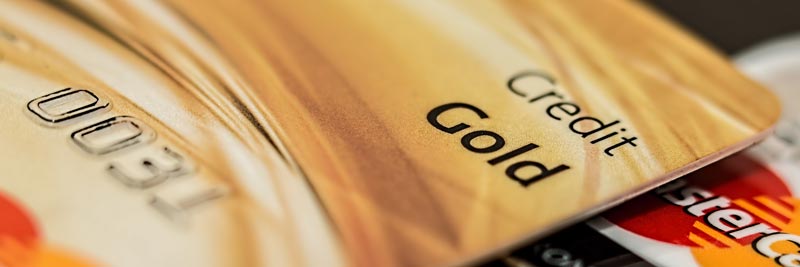Get fit for free – the MoneyAware challenge!
This month our challenge has been to get fit for free. Well,...
Credit card debt can really creep up on you. Many of the people who contact us find credit cards to be a real struggle, especially if they’re mainly paying interest and charges each month.
If you think you’re spending too much on a credit card, or are already in debt management, how can you avoid getting into further debt?
With so many things being cheaper online it can be important to have a card that you can use for internet purchases. It’s easier to keep track of your spending with a debit card than a credit card as the money comes straight out of your bank account. There’s also less temptation to spend more than you can afford.
Even basic bank accounts allow customers to have some sort of debit card these days. They’re easy to get hold of and may help you to be more in control of your money.

It’s important to have a good knowledge of what money you have left to spend in your account; otherwise you could end up with hefty bank charges. If you wanted an even easier-to-manage card you could take out a pre-payment credit card.
These cards work in much the same way as a pay-as-you-go mobile phone. You load the card up with credit and use it until the credit has run out. There’s no risk of spending more than you have and it can be a good way to keep track of your money.
The major downside of these cards is that you can end up paying charges to either load up or spend money with them. MoneySavingExpert.com has a really useful pre-payment card guide to help reduce these charges.
If you would prefer a more old-school approach, you could avoid plastic cards altogether. Having a ‘cash only’ attitude can help you really see what you’re spending your money on.
It’s also easier to stop yourself from spending when you have to literally hand over cash for your purchases. Putting things on a card doesn’t always feel like spending, so sticking to cash can help to curb your spending.

The majority of people we speak to with credit card debts have not accumulated their debt from a lavish lifestyle. Most of the time it comes from putting the weekly shop on a credit card, not from buying jetskis and a champagne! Planning and sticking to a budget is a good way to avoid having to use credit cards to survive.
Spending a bit of time planning your finances can pay dividends in the long term. By organising what you’re going to spend your money on you can make sure that you haven’t run out of money weeks before payday.
If you’re feeling a bit down in the dumps it can be tempting to treat yourself to a bit of retail therapy, which can lead to building up credit card debts. Taking a more philosophical approach might help to put you off impulse spending.
There are also certain times of the year which can trigger a splurge, such as Christmas, birthdays and Black Friday.
Will buying the thing you think you want really make you happy? If you think back on the things in your life that really matter, they don’t tend to involve material possessions. If you can successfully put yourself off buying something on a credit card you’ll be better off in the long run.
If you do want to grab a Black Friday bargain, just make sure it’s something you truly need!

Unexpected changes to your finances, by their very nature, come out of nowhere. This can be where a lot of credit card spending comes from – if your income’s gone down it can be easy to make up the difference on a card. If you can afford to squirrel some money away you’ll be better prepared if you have a shock to your finances.
The amounts that people recommend having in a rainy day fund vary, but if you can have one month’s income saved it will provide a useful cushion should you be made redundant, have a sudden rise in bills or have to reduce hours at work due to illness.
It’s never too late to get help with your debts. Our free online advice tool can help you plan a monthly budget, suggest practical solutions to help you and email you a personal action plan and advice guide.
If you don’t need debt advice but want to take control of your finances, our 7 Days, 7 Ways email programme can help. Over 11,000 people have signed up, so make sure you don’t miss out!
Tags borrowingbudgetingcashcredit cardemergency fundprepaid credit cardrelying on creditThis month our challenge has been to get fit for free. Well,...
Do you know what secret spending is? It’s when, with all the...
Cars cost a bomb to buy, a shedload to service and a...

Responses